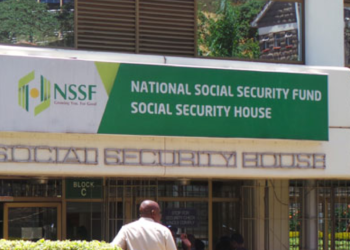The drawn-out dispute between Standard Chartered Kenya and its former employees should have been settled by now, yet here we stand, witnessing a legal standoff that undermines not just retiree rights but trust in institutions. The case of the 629 ex-staff, who won a Supreme Court upheld judgment for a KES 7.0 billion pension adjustment, is now entangled in a separate fight over legal fees, stalling their long-overdue payout. Meanwhile, more than 600 additional former workers demand to be included in the remedy. The consequences extend far beyond the courtroom.
At its core, the retirees’ original grievance was just. When Standard Chartered transitioned from a Defined Benefit to a Defined Contribution pension scheme in 1999, errors in actuarial calculations, exclusion of key allowances, and misuse of a pension surplus allegedly resulted in substantial underpayment of benefits. The Retirement Benefits Appeals Tribunal (RBAT) sided with the retirees in 2022, directing full recalculation and payment of arrears, interest, cost of living adjustments, and housing allowances. The High Court, Court of Appeal, and ultimately the Supreme Court upheld that ruling in September 2025.
Yet even a lawful victory becomes hollow when execution is blocked. A High Court judge froze release of the KES 7.0 billion award after a law firm representing the retirees sued to have its service costs settled first. The firm, Oseko & Ouma Advocates LLP, contends it has an enforceable retainer agreement from 2005 with the retirees. The injunction halts the payout until the legal fee dispute is resolved effectively punishing benefit awardees for a separate contractual spat.
The controversy doesn’t stop there. Over 600 former employees who were not part of the original 629 group now demand inclusion, claiming they too were victims of the same pension miscalculations. They threaten further legal action for contempt and non-compliance, arguing that justice must be more equitable than rigid.
On the other side, Standard Chartered has issued a profit warning, projecting a net earnings decline of at least 25.0% in 2025 due to the pension liability. The bank asserts it is well-capitalized and committed to paying its obligations but in practice, the legal limbo undermines retirees’ faith.
From an ethical vantage, the irony is bitter: retirees fought for years to enforce a legally recognized claim, only to be stalled by their own legal representatives’ fee demand. While lawyers deserve fair compensation, to hold the entire judgment hostage sets a dangerous precedent privileging procedural wrangling over substantive justice.
This dispute matters to all Kenyans: it tests the strength of our institutional processes, the credibility of judicial enforcement, and the dignity accorded to those who once served. As for the non-629 group, they merit speedy review to determine whether their claims too deserve remedy. In the end, justice delayed becomes justice denied. The StanChart retirees and potential additional claimants demand not just restitution, but restoration of trust in the system that promises it.
















